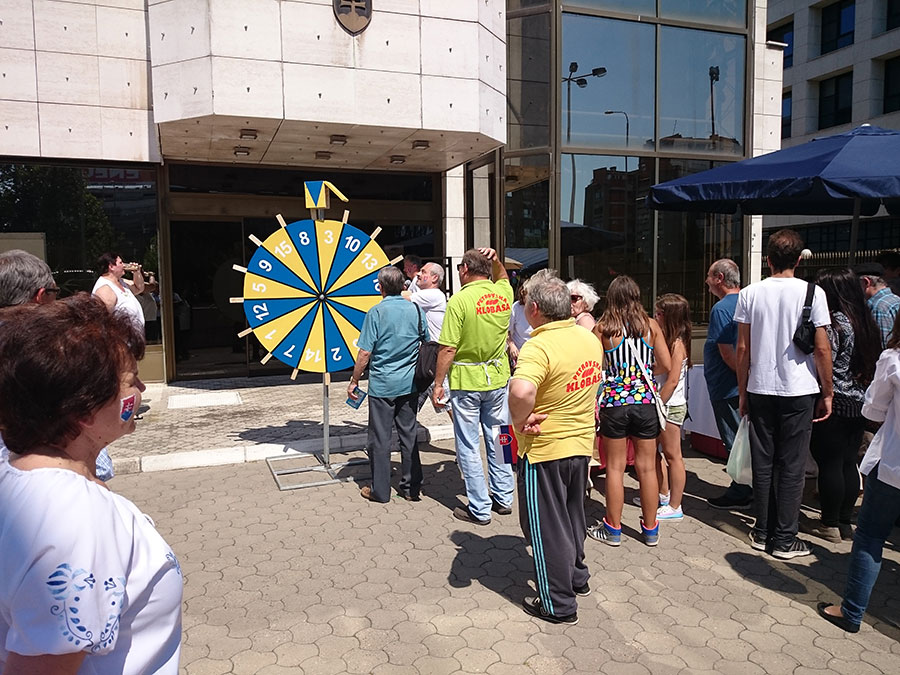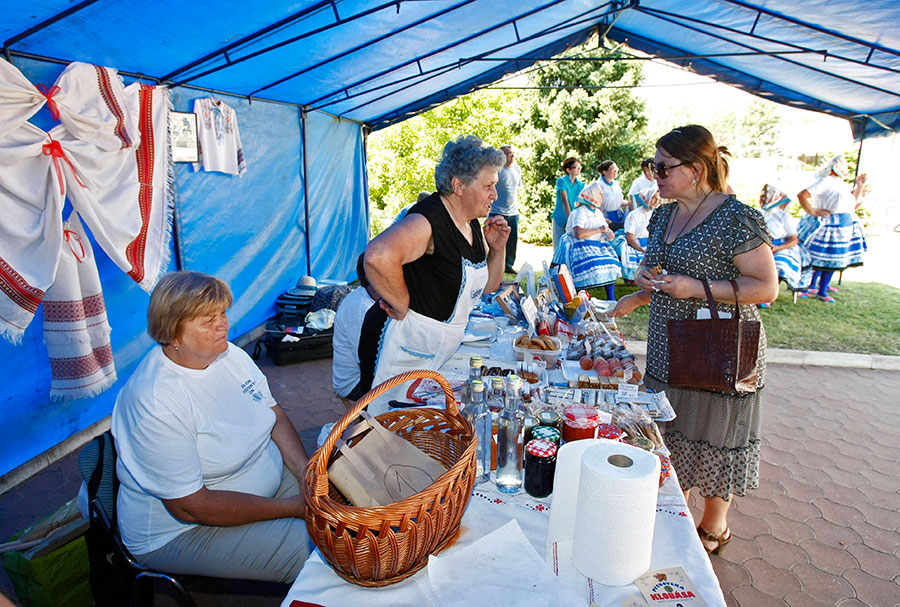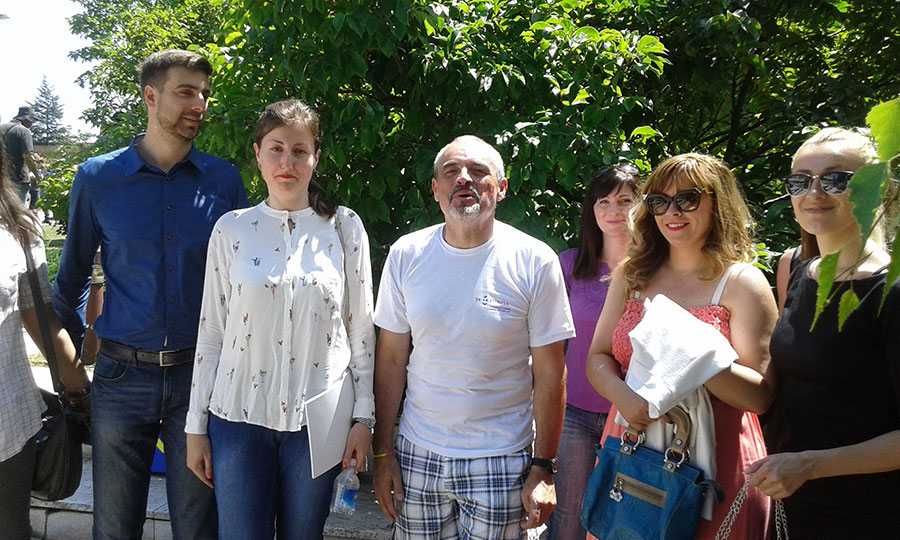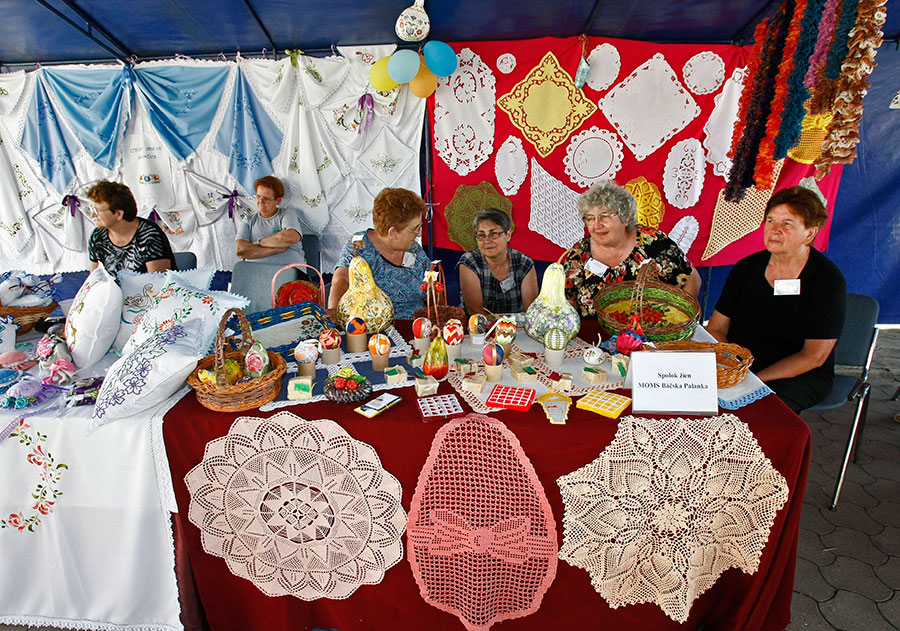Spacious garden of the Slovak Embassy in Belgrade was filled with citizens who spent the Open Door Day with Embassy staff and representatives of Slovakian associations in Serbia. They seized the opportunity to buy souvenirs, handicrafts, paintings by naive artists, taste Slovakian specialties, watch performances of folk dance groups and play mini golf.
From morning until early afternoon hours, the citizens could check their knowledge about the EU. Those who have answered correctly to the questions such as “How many of the EU Member States are not part of the NATO” or “How many EU Member States are not part of the Schengen area” were awarded with Slovakian memorabilia.
“It is not about the pace of opening the chapters, but the pace of closing them“
 Open Door Day at the Slovak Embassy was organised in cooperation with EU Info Centre and attended by students of Belgrade faculties, members of the Forum for diplomacy and international relations. Peter Susko, Deputy Head of the Embassy, spoke with them in fluent Serbian.
Open Door Day at the Slovak Embassy was organised in cooperation with EU Info Centre and attended by students of Belgrade faculties, members of the Forum for diplomacy and international relations. Peter Susko, Deputy Head of the Embassy, spoke with them in fluent Serbian.
He reminded that Slovak path to the EU was not an easy one. Due to political differences between the EU Member States and Prime Minister Vladimir Mečiar’s government, Slovakia was lagging behind Czech Republic, Hungary and Poland, but managed to become a full-fledged EU Member State within five years since it was granted the candidate country status back in 2004. According to Susko, the difference between Serbia today and Slovakia at the time of EU accession is that “the people wanted to join the EU and were thrilled with the idea, with more than 60% of them showing support for the accession.”
He stressed that Slovakia undertook the reform of justice in line with European standards “before it was granted the candidate country status and thus had an easier job than Serbia. The hardest part was to move on from the Mečiar era and we were looked upon as second-class people because of our political history,” Susko said.
The students asked him how far away Serbia is from EU membership, Susko said “it is not about the pace of opening the chapters, but the pace of closing them. The reforms are necessary for Serbia, not the EU. Your justice system matters to Serbian people, not Slovaks. I believe the process has been lifted off the ground and we, as a country holding the EU Council presidency, will do everything we can to keep the dynamics.”

Beta
Susko described the next six months of Slovak presidency as a moderation which always entails looking for compromises among 28 sovereign EU countries, each with a different standpoint on each of the issues. “The hardest part will the UK activating the Article 50 of the TEU, but in my opinion, the most important thing is to keep the EU strong and it is up to us to prove the EU is a club worthy of joining.”
By joining the EU Slovakia became an industrial country
According to him, living standard of Slovak people rose after the EU accession as it opened up more space for foreign investment. “Today, we are a country with the highest number of cars per capita. We have four car companies – Kia from South Korea, Peugeot Citroen from France, Volkswagen from Germany, and, since recently, Jaguar from the UK, as well. We are now an industrial country, something we have never been before, and we are gaining reputation as such around the world.”
Susko also spoke about many young people leaving Slovakia who, thanks to the EU membership, found jobs in Western Europe. Slovakia introduced a number of measures to keep the youth from leaving or convince them to return, whether by offering them lower interest rates for loans or, as of recently and under certain conditions, grants amounting to EUR10 000.

Peter Susko u susretu sa beogradskim studentima
Asked to comment on the growing scepticism in EU Members States, he said that “even a Eurosceptic” managed to win over a few MPs in Slovak Parliament. “The membership, however, brings us benefits and most of the people see it as a good thing. Through EU funds, we get more than we invest in the Union,” Susko said.




